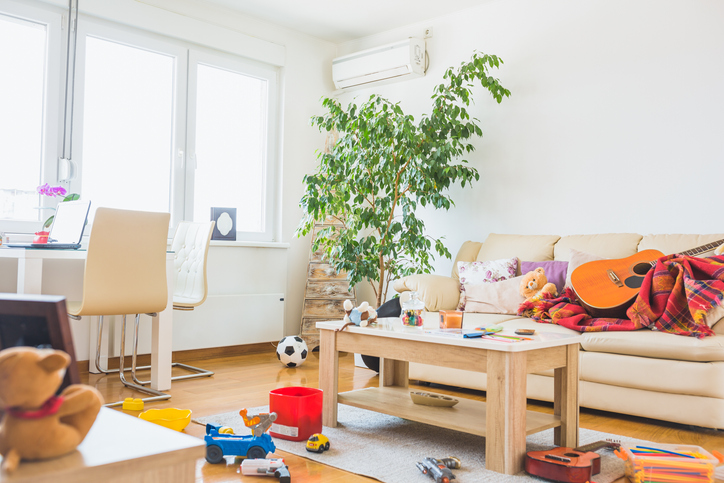
In Easy Steps!
What is your relationship with clutter? If you keep your space neat at all times, that's great. If there are times when you can't, or if you usually don't, those times place a burden on you which, even if you are only dimly aware of it, complicates your life.
The Problems with Clutter
- The most obvious problem is that it can cause difficulties in your environment, such as tripping over things or wasting time looking for things that aren't in their proper place.
- It takes up valuable mental space, because your mind must respond to each thing it perceives. (This takes place out of awareness.) For most items of clutter, the mental response is that it isn't important, e.g. items on the floor aren't relevant when you are working on something or even enjoying something. Responding to each perception takes energy; therefore, it is tiring to have irrelevant perceptions to respond to.
- You are denied the pleasure of existing in a neat, attractive environment.
The Solution
Choose the easiest source of clutter that you can see. If you are someone who doesn't make your bed in the morning, who leaves dirty dishes in the sink, or who lets laundry accumulate until it's spilling over the laundry basket, don't choose one of these tasks. They are too complex. You can decide which, of all the sources of clutter in your space, would be the quickest and easiest to deal with. Something like putting away the toothpaste after brushing your teeth, having a designated place for keys and mail, or putting dirty clothes in the laundry basket rather than dropping them on the floor. You know best what your sources of clutter are, and which would be the easiest to address.
One Task at a Time
For a week, focus on solving that one issue: putting the toothpaste away, finding a place for your mail and keys, putting your dirty clothes in the laundry basket, or whatever "easiest" thing you have chosen. As you do your "easiest" thing, you will feel pleasure as your endorphins kick in. If you backslide, don't worry. Just resume your task when you remember it.
Then choose a different easy task to perform, and when that has become habitual, choose the next easiest, and continue in this way. You may well backslide again, but again, don't worry. Just resume your task when you remember to do so. You may find yourself wanting to move more quickly along this path; you may even find it exciting. And as you go, you will enjoy the pleasure of having your space become increasingly neat.
An Additional Boost
If you have been doing self-hypnosis, you can wish for a new mental pathway that will be dedicated to helping you develop an increasingly pleasurable environment for yourself. (If you haven't yet learned about self-hypnosis, the Tool that you see below will help you with that.) And, of course, if you have created your own Inner Guide, it will be helping you, too.